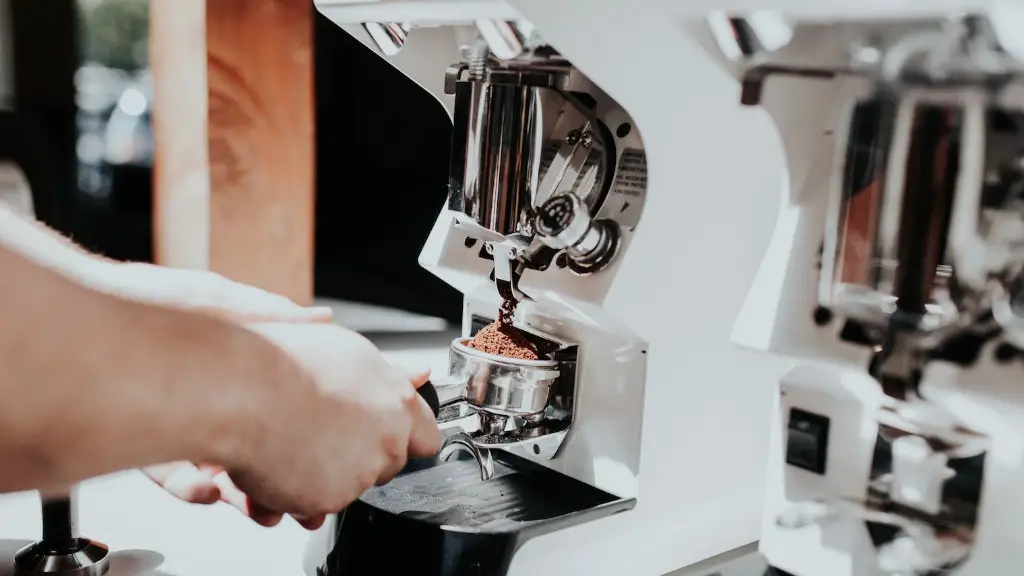A keto diet involves eating a diet high in healthy fats and low in carbohydrates, an approach called ‘ketosis’. While this type of diet is becoming more and more popular among those wishing to lose weight and improve their health, one question that comes up is whether it is compatible with a regular intake of coffee. Coffee is known to provide lots of health benefits, so could it still be drank while on a keto diet?
Most health professionals agree that it is possible to drink coffee while following a keto diet, as long as certain precautions are taken. For starters, it is important to note that sugar and unhealthy creams or sweeteners should be avoided, as this can add unneeded Calories and carbohydrates to your diet. Instead, it is recommended to drink plain or black coffee, or to use healthier alternatives such as almond or coconut milk.
Various experts also recommend drinking coffee in moderation. Too much of anything won’t be good for you, and that is especially true when it comes to beverages with caffeine. Too much caffeine can lead to the promotion of unhealthy habits and can cause electrical changes in the brain, which could disrupt natural biological processes in the body. Therefore, consuming no more than two cups of coffee per day, and preferably one, is recommended.
Additionally, it is possible to combine coffee with other commonly consumed items on a keto diet, such as butter and heavy cream. This is popularly known as ‘bulletproof coffee’ and its main purpose is to help provide the body with additional healthy fats. However, people who wish to combine their coffee with butter and cream should make sure that they are using natural, high-quality ingredients. It would also bears mentioning that too much butter and cream could potentially impair ketosis.
In conclusion, coffee can be drank while following a keto diet. It is important, however, to make sure not to add sugar or unhealthy creamers, to limit the intake of caffeine, and to be aware of the potential impact that adding butter or cream could have on the diet. According to the majority of health professionals, those that can abide by these simple precautions can continue to enjoy coffee with their keto diet, and benefit from its numerous health benefits.
Impact of Coffee in a Keto Diet
The effects of coffee consumption in a keto diet can be quite positive. Coffee can help provide an increased focus and alertness which can aid in achieving the goals set out on a keto diet. It can also help to boost the body’s metabolism, which can result in better weightloss down the line. Many studies have also found that coffee can help decrease the risk of developing a wide range of diseases, including some cancers and Parkinson’s Disease.
Yet, it is important to be aware of the potential negative consequences of drinking coffee while on a keto diet. Consuming too much caffeine can result in increased anxiety and insomnia. Other symptoms such as muscle tremors and headaches can also occur when drinking an excessive amount of coffee. Additionally, depending on the ingredients used, it is possible for coffee to add unneeded calories into the diet, potentially throwing the user out of a state of ketosis.
How to Maximize the Benefits of Coffee
One way to make sure that coffee can offer the most benefit to those on a keto diet is to make sure to choose an organic, high-quality product. Additionally, making sure that the coffee has not been exposed to any unnecessary processing, such as the use of synthetic fertilizers and pesticides, is recommended. Finally, those on a keto diet should look for coffees that are certified as containing no mold or genetic modification, as this can be an indication of a higher quality product.
When it comes to preparing the coffee, always avoid the addition of sugars, syrups, and unhealthy creams. Additionally, be mindful of the caffeine content, and make sure to never exceed two cups of coffee per day, as too much caffeine can lead to increased anxiety and insomnia.
It is also important to note that those on a keto diet should be aware of the addition of butter or heavy cream to the coffee, as this can lead to an increase in calories the number of carbohydrates consumed. While the benefits can be positive, it is advised to take caution when using butter or cream, and to be aware of the potential negative nutritional impact.
Difference between Caffeine and Decaffeinated Coffee
When it comes to drinking coffee while on a keto diet, one issue that arises is the differences in caffeine content between regular coffee and decaffeinated varieties. Caffeine is known to provide an increased focus and alertness, and some experts consider it one of the main benefits of drinking coffee in the first place. On the other hand, too much caffeine can lead to various symptoms such as anxiety, insomnia and headaches.
Decaffeinated coffee can be a great choice for those that are looking to reduce the amount of caffeine that they consume in order to achieve better health. Studies have shown that decaffeinated coffee can still contain small amounts of caffeine, around 3 milligrams per cup. However, in general the difference between regular coffee and decaf varieties is significant enough that those looking to drink coffee while on a keto diet are good to feel safe in making the switch.
The Benefits of Intermittent Fasting and Coffee
Intermittent fasting is a dietary approach that requires the individual to alternate periods of fasting and eating, typically within an 8-hour window. Many studies have shown that this type of fasting can result in an increased ability of the body to burn fat, especially around the abdomen and the upper body. Additionally, those that follow intermittent fasting usually report an improved sense of focus and mental clarity.
It can therefore be beneficial to combine the practice of intermittent fasting with the consumption of coffee. Granted, when fasting it is important to still consume healthy beverages such as water, tea and broth, however coffee can have added benefits in aiding the process. Studies have found that when coffee is drank during a fasting period, it can increase the body’s ability to burn fat. Additionally, the added caffeine can also help to maintain alertness and focus during the fasting period.
Of course, moderation is key when combining intermittent fasting and coffee consumption. As mentioned before, too much coffee can disrupt natural biological processes, and can also cause anxiety and insomnia. Therefore, those looking to combine coffee and intermittent fasting should look to limit coffee consumption to two cups per day, preferably during their eating period, and to avoid drinking coffee while fasting.
In Summary
There is no doubt that drinking coffee can be beneficial when following a keto diet. However, it is important to be aware of the precautions that must be taken when drinking coffee on a keto diet, such as making sure not to add any unhealthy creamers, and to limit the intake of caffeine. Additionally, the combination of coffee and intermittent fasting can have beneficial results when done responsibly.
Ultimately, there is no reason to avoid drinking coffee when on a keto diet. Just make sure to drink in moderation and be aware of the potential impact it could have on ketosis. Keep this in mind, and coffee can be enjoyed with no major problems as part of a keto diet.




